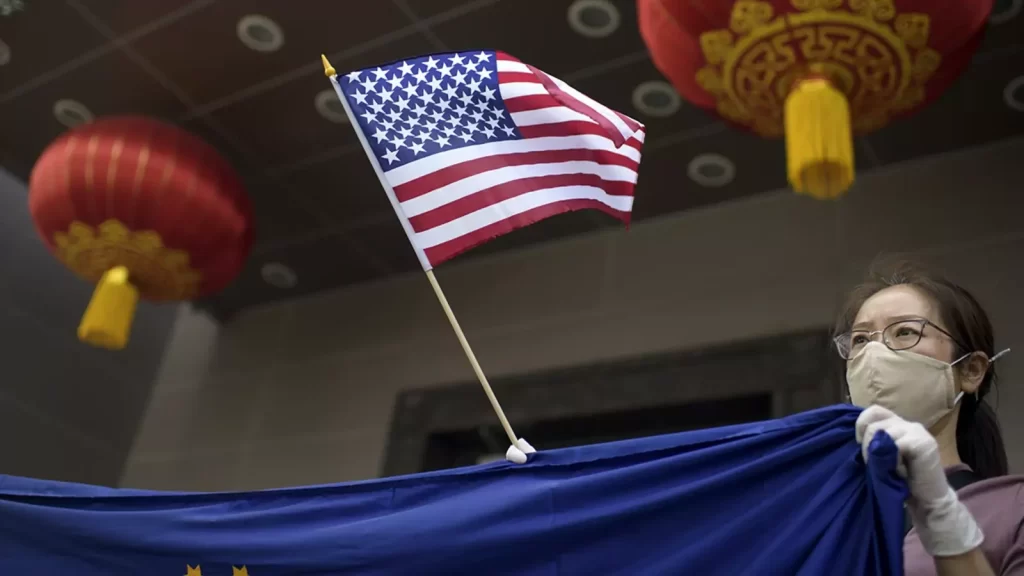China has exhibited a composed reaction to the U.S. decision to increase tariffs on $18 billion worth of Chinese products, ranging from syringes to batteries.
This response indicates that relations between the world’s two largest economies might become cooler rather than rekindling a full-scale trade war.
The Chinese government sharply criticized the Biden administration’s move and promised “resolute measures” to safeguard its interests.
This stance marks a change from the 2018 trade tensions under the Trump administration, which saw escalating tariffs on $300 billion of Chinese goods.
Analysts note that the current situation reflects a newfound confidence and a different dynamic in China’s approach.
The Biden administration had informed Chinese officials about the potential measures beforehand, targeting sectors like electric vehicles (EVs) and batteries, where China holds a dominant position and the economic impact is relatively contained.
Chinese state media have responded by accusing the U.S. of undermining its own free trade principles and jeopardizing climate goals, potentially increasing costs for American consumers.
This narrative suggests that the U.S. actions might be self-damaging, a departure from the more confrontational tone of 2018 when China had proposed extreme countermeasures.
Wang Huiyao, president of the Center for China and Globalization, commented, “China can take the moral high ground,” emphasizing China’s adherence to international standards.
The Chinese commerce ministry also highlighted that the U.S. had violated the spirit of a recent agreement aimed at stabilizing bilateral relations, which was brokered between Presidents Xi Jinping and Joe Biden.
On his part, Biden has expressed his intent to compete with China but clarified his aversion to instigating a trade war, seeking cooperation in areas like climate change.
Meanwhile, China has the opportunity to implement targeted countermeasures before the new tariffs are enforced.
Significantly, China’s technological and automotive sectors have shown robust growth despite past challenges.
Since 2018, China’s production of electric vehicles has increased eightfold, making it the top auto exporter globally, surpassing Japan.
Chinese tech giant Huawei has also recovered from U.S. sanctions, becoming a key player in the global smartphone and EV markets.
Recent interactions, such as U.S. Treasury Secretary Janet Yellen’s visits to China, have focused on concerns over China’s burgeoning industrial capacities in EVs and batteries, which the U.S. views as a threat to its economic interests.
Chinese officials and media have countered these claims, attributing the success of Chinese EV manufacturers to innovation and supply chain efficiencies rather than government subsidies.
With the U.S. maintaining a significant trade deficit with China, this issue remains a sensitive point in Washington.
As the 2024 presidential election approaches, both candidates have adopted a firm stance on China, a context well understood by Chinese officials.
Sean Stein, chairman of the American Chamber of Commerce in China, observed that the tariff measures were relatively mild and suggested that the U.S. approach was cautious.
Additionally, Beijing is likely weighing its options regarding future cooperation, depending on the outcome of the U.S. elections.
Wang noted, “The thing about this Biden initiative is that it is election driven,” contrasting it with Trump’s actions, which were more aligned with pursuing a trade war.
